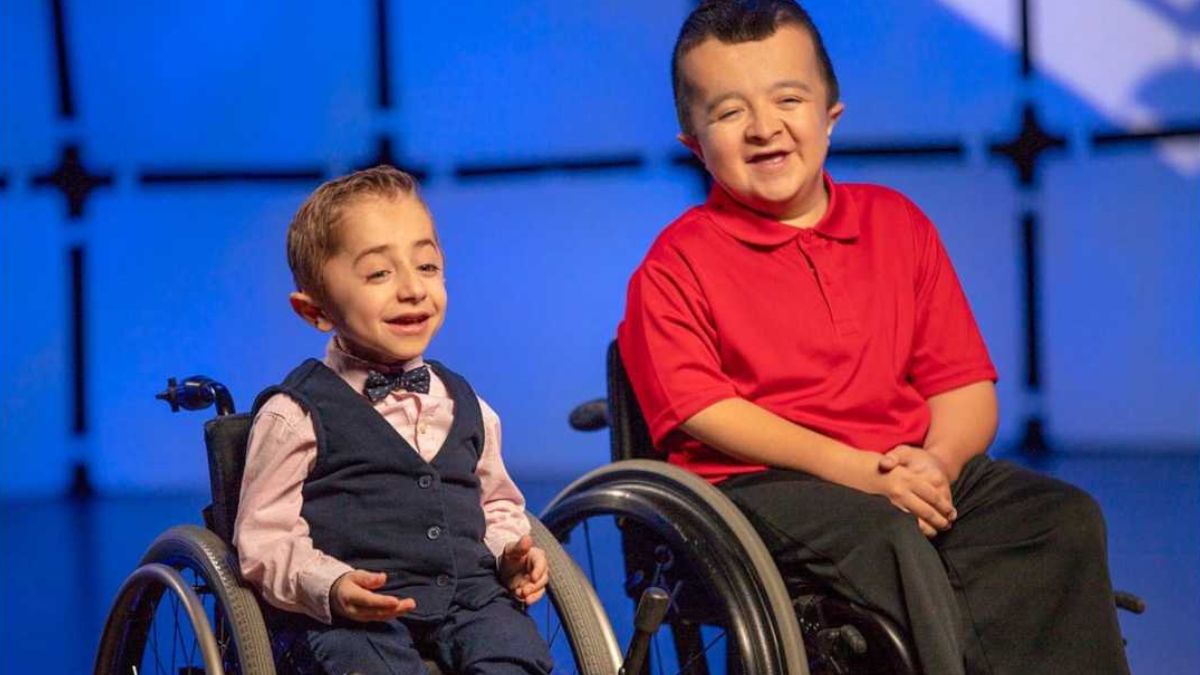Alec Cabacungan and Kaleb Wolf De Melo Torres gained recognition through their roles in the Shriners Hospitals for Children commercials. These ads raise awareness and encourage donations for the organization. Many wonder, Do Alec and Kaleb get paid for commercials? This article explores this question, looking at child actor compensation, charitable endorsements, and their involvement in non-profit campaigns.
Who Are Alec and Kaleb?
Alec Cabacungan
Alec Cabacungan, born with osteogenesis imperfecta, faces the challenge of fragile bones that break easily. Despite this, Alec’s bright personality and charisma made him a key figure in Shriners commercials. His story touched millions, highlighting the essential work Shriners Hospitals do for children.
Kaleb Wolf De Melo Torres
Kaleb Wolf De Melo Torres, also born with osteogenesis imperfecta, became widely known after appearing alongside Alec. Kaleb’s positivity and resilience further amplified Shriners’ message, showing the impact of their care on children’s lives.
Do Alec and Kaleb Get Paid for Commercials?
Many ask whether Alec and Kaleb receive payment for their appearances in these commercials. To answer this, it helps to look at how child actors get paid and the role non-profits play.
Child Actors and Payment
In most commercial settings, child actors receive payment for their work. Compensation includes upfront fees and residuals for repeated airings. Unions such as SAG-AFTRA ensure fair pay for child actors. These guidelines provide structure and fairness within the entertainment industry.
Non-Profits and Compensation
Shriners Hospitals for Children function as a non-profit organization. Individuals appearing in non-profit ads often volunteer their time. Alec and Kaleb likely participate out of gratitude for the life-changing care they received from Shriners Hospitals. Their involvement reflects their desire to give back rather than financial gain.
Shriners Commercials’ Unique Model
Shriners commercials featuring Alec and Kaleb might operate differently compared to typical ads. The focus lies on sharing their personal stories and creating emotional connections with viewers. Whether they receive payment or not, Alec and Kaleb clearly contribute to a greater cause by promoting the hospital’s mission.
Alec and Kaleb’s Role in Shriners’ Mission
Charitable Ambassadors
Charities often rely on individuals who personally benefited from their services to act as ambassadors. Alec and Kaleb perfectly embody Shriners Hospitals’ mission. Their real-life experiences bring authenticity to the campaign, encouraging donations and support. As ambassadors, they offer more than just a face for the commercials—they represent hope for many families.
The Power of Personal Stories
By sharing their journeys, Alec and Kaleb have significantly contributed to Shriners’ success. Their stories inspire viewers to donate and support the organization’s free medical services for children. Without Alec and Kaleb’s involvement, Shriners might struggle to connect with the public in the same impactful way.
Legal Protections for Child Actors
Child Labor Laws
Child actors benefit from protections designed to safeguard their earnings. Coogan Laws, for example, require part of their income to be held in trust until they turn 18. These laws ensure that young actors don’t lose out on the financial benefits they’ve earned.
Commercial Guidelines
In regular commercial settings, unions such as SAG-AFTRA enforce fair compensation for actors, which includes both appearance fees and residuals. However, when actors participate in non-profit campaigns, the arrangement may differ. Many individuals volunteer for these types of projects, knowing the focus remains on supporting the cause.
Why Alec and Kaleb Are So Valuable to Shriners
Contributions Beyond Payment
Alec and Kaleb’s participation in Shriners’ commercials adds enormous value to the hospital’s mission, regardless of payment. By telling their stories, they bring attention to the hospital’s life-saving work and encourage donations. Their roles have become indispensable in ensuring the hospital continues providing free care to children.
Public Support and Their Recognition
The public recognizes Alec and Kaleb as the faces of Shriners’ fundraising efforts. Alec, in particular, has participated in interviews and events beyond his commercial appearances. Both boys represent resilience and hope, which strengthens the hospital’s ability to generate support.
Conclusion: Do Alec and Kaleb Get Paid for Shriners Commercials?
While the exact details remain unclear, Alec and Kaleb’s involvement with Shriners commercials likely stems from their personal connection to the hospital. Child actors typically receive compensation, but these commercials may differ because of their non-profit nature. More importantly, Alec and Kaleb’s participation focuses on helping others rather than financial gain.
Their contributions have had an incredible impact on Shriners’ mission, raising awareness and encouraging donations to support free medical care for children. Whether paid or not, their roles in the commercials embody the heart of Shriners’ efforts and show the importance of giving back.
FAQs
1. Do Alec and Kaleb get paid for their commercials?
The specific details are unknown, but they likely participate to give back to Shriners Hospitals.
2. Why are Alec and Kaleb in Shriners commercials?
They appear to share their personal experiences and raise awareness for Shriners Hospitals.
3. Are child actors usually paid for commercials?
Yes, most child actors receive compensation according to industry standards.
4. How do Alec and Kaleb help Shriners Hospitals?
Their stories inspire viewers to donate, which supports Shriners’ mission to provide free medical care.
5. What condition do Alec and Kaleb have?
Both were born with osteogenesis imperfecta, a condition that makes their bones more fragile.










